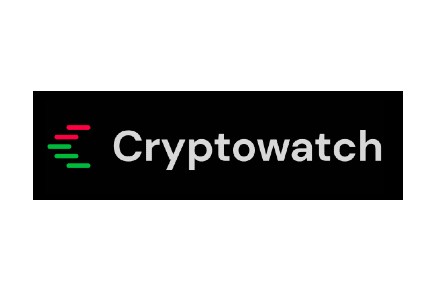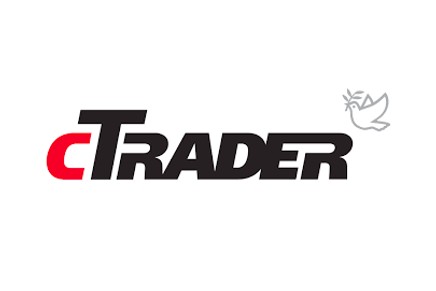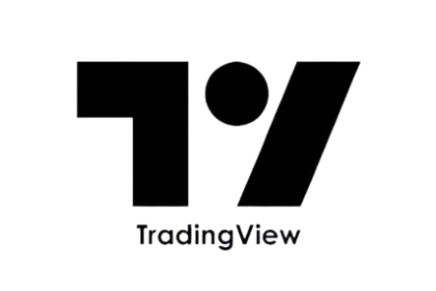MetaTrader is an intuitive and highly customisable trading platform that aims to take some of the hassle out of trading. Though, if you don’t want to use MetaTrader, there are plenty of substitutes on offer.
So, with my guide, you can discover five of the best alternatives to MetaTrader, and the features you should be looking out for when deciding which platform to use.
Also consider: Best MetaTrader 4 Brokers UK
Top alternatives to MetaTrader in July 2024
Browse my list below to discover my top alternatives to MetaTrader picks.
TradingView
TradingView is a great alternative to MetaTrader, operated by Capital.com, a reputable broker, and is one of the most popular trading platforms behind MetaTrader.
If you feel like you need more practise before you can commit to spending money on a platform, then TradingView could be for you. Indeed, it offers an in-depth demo account that lets you make practise trades.
Alongside this demo account, there is also a large social network for investors on TradingView. With this, you can communicate with other traders and copy their investments.
And, much like other platforms, TradingView has a wide selection of different advanced charting tools, indicator builders, and market analysis tools for you to use.
Also, TradingView has a vast selection of different securities to invest in, as you can access more than 6,000 markets around the world.
Which is better: TradingView or MetaTrader 4 (MT4)?
Again, both TradingView and MetaTrader come with benefits and downsides that may appeal to different people.
TradingView does reportedly offer more trading tools and indicators to use. Also, while both MetaTrader and TradingView have mobile accounts, you can’t make deposits or withdrawals on MetaTrader’s mobile app, while you can on TradingView.
Though, MetaTrader is supported by far more brokers than TradingView. So, if you already have a trading account and don’t want to open another one, it may be worth using MetaTrader instead.

Cryptowatch
Cryptowatch is one good alternative to the MetaTrader platform that you can use right now.
The platform aims to make it easier to keep track of typically complex markets.
As the name suggests, Cryptowatch only offers access to cryptocurrency assets. So, if crypto trading is something you’ve always wanted to try, then Cryptowatch could be the perfect platform for you.
The platform offers a range of market data, has many different customisable interfaces, and has a unique “correlations” feature that is designed to help you spot trends in crypto markets.
One thing to keep in mind about Cryptowatch is its lack of cross-compatibility. There is no mobile support on this platform, meaning you won’t be able to trade on it remotely.
Though, on the bright side, Cryptowatch does support automated trading. So, if you’re a more advanced user, you can set up your own trading orders to execute at specific times.

cTrader
Another great MetaTrader alternative is cTrader.
One of the brilliant things about cTrader is its market access – you can typically trade a wide range of assets, including:
- Stocks and shares
- Stock indices
- Commodities
- Forex
If you’re looking for a trading platform with a well-designed user interface, then cTrader could be for you. Indeed, the platform has an uncluttered layout that is simple to understand.
With cTrader, you can also automate your trading using its aptly named “cTrader automate” service.
Better yet, the platform offers several different layouts for you to use, adding to the customisability of the software.
cTrader also has thorough charting tools – you can establish multi- or single-chart layouts, change the colour schemes of your charts, or change their timeframe.
Which is better: cTrader or MetaTrader 5 (MT5)?
Both cTrader and MetaTrader come with pros and cons, so there technically isn’t a “better” platform – it all comes down to your personal preferences.
For example, cTrader has far more timeframe options for charts when compared to MT5.
In fact, compared to MetaTrader, cTrader has a much wider variety of charting and market depth tools for you to use.
Though, you may find that there is more support for the MetaTrader platforms as they are more widely used.
Also, MetaTrader reportedly has a simpler interface, which could make it better suited to beginners.

RoboForex
If you’re looking for a platform that can be used on the go from your mobile device, then RoboForex could be the platform for you. In fact, RoboForex only supports mobile devices – you can’t use the platform from a computer.
One of the brilliant aspects of RoboForex is its in-depth customer support services. The platform has 24/7 live support that you can contact whenever you have an issue with RoboForex.
Also, RoboForex has a wide selection of different educational materials for you to use. This includes:
- Documentation
- Webinars
- Live online courses and videos
- In-person lessons.
As for the assets available on this platform, you can typically trade forex, stocks and shares, ETFs, commodities, and more.
One thing to note with RoboForex is its minimum deposit requirements, albeit the amount of money you’ll be asked to deposit is low – you will typically be asked to transfer $10 when you first open an account.
The platform also has an intuitive copy trading service called “CopyFx” that lets you mimic the investments of more experienced traders. This could make RoboForex the perfect platform for beginners.

Think Trader
Yet another alternative to MetaTrader is Think Trader.
This powerful platform is mostly designed as a forex and CFD trading platform, though it does offer access to indices, cryptocurrencies, and commodities, too.
This platform has around 125 different indicators, 50 drawing tools, and 40 market analysis tools to use while you trade.
If you’re busy and don’t have the time to sit in front of a trading screen all day, then this could be the platform for you, as it also offers cloud-based alerts that can help you stay on top of constantly moving markets.
Additionally, Think Trader has a real-time news service that will keep you updated about any important events happening around the world that could influence price movements.
And, as well as its desktop app, Think Trader has a mobile app that lets you trade on the move.
Which platform is the best alternative to MetaTrader?
Since each platform varies, there is no “best” alternative to MetaTrader.
When deciding which platform you should use, you ideally want to compare the features of each and figure out which best suits you.
For example, if you’re still a beginner and aren’t confident making your own investment decisions, you should ideally consider using a platform that has a demo account, such as TradingView.
You should also compare the offerings from each platform – if you wish to trade cryptocurrencies, there is no point in using a platform that doesn’t support access to these assets.
Or, if you feel as though you’ll need some help to initially understand the platform, it may be worth using one that has reliable customer support services, such as RoboForex.
Features to look out for when deciding which alternative to use
So, now that you know about some of the best alternatives to MetaTrader, you’re likely wondering about the features you should keep an eye out for when you’re comparing the different platforms.
There are many different features and aspects for you to compare, so continue reading to discover what you should be looking out for.
Market access
Different trading platforms may offer access to various markets. For example, you may want to look for a platform that allows you to trade on stock markets.
Or, if you only plan on forex trading, you should look for a platform that supports access to the currency markets.
Device compatibility
Another perhaps less obvious aspect to look for when deciding which platform to use is its device compatibility.
For instance, if you are constantly on the move and want to make your trades wherever you are, you should ideally look for a platform that is available on a mobile device.
If you are planning on using one of the MetaTrader alternatives remotely, you should first ensure that the platform is available on your device. Some may only offer support for iOS devices which could leave Android users unable to access the platform, or vice versa.
Order types
You may also find that the different MetaTrader alternatives have different order types.
For example, you should ideally look for a platform that offers stop-loss limit orders. This way, unfavourable trades can be automatically closed when they reach a particular value.
It’s important that you make use of stop-loss indicators if they’re available on your chosen platform – they offer a brilliant risk management method to stop your trades from sinking in value too much.
Since trading CFDs and forex tends to be quite high risk, any tools that can limit your losses are essential.
Other key features worth looking out for when it comes to order types include:
- Trailing stops
- Pending orders
- Stop orders
Indicators and tools
As mentioned, one of the brilliant things about MetaTrader is its offering of tools and indicators that take some of the hassle out of trading.
When deciding which MetaTrader alternative to use, you should ideally check the tools and indicators that the platform offers.
For example, some platforms may offer market insights and trading signals, while others may only offer advanced tools for technical analysis.
Chart features
Another fantastic aspect of MetaTrader and its alternatives is how they let you customise charts.
Many of these alternative platforms offer advanced chart drawing tools that help you keep track of typically complicated markets.
With these advanced charting tools, you can conduct comprehensive price analysis with the market data offered. This can help you predict how a particular security may move.
Automated and copy trading
Many MetaTrader alternatives also let you set up parameters for automated trading.
Automated trading varies from basic to more advanced features. For example, a stop-loss limit is a form of automated trading. This is a limit you set on one of your positions, and when it reaches a specific value, the platform will execute trades automatically to prevent you from taking too much of a loss.
More advanced forms of automatic trading could involve forex robots. These are programs that manage order execution and automatically oversee your portfolio.
Though, if you want to make use of a forex robot, you should keep in mind that you will typically need to purchase one.
Copy trading, on the other hand, is a form of social trading that allows you to copy the investments of professional traders.
These experienced traders will make investments, and then announce them on a platform that resembles a social network. Then, you and other traders can copy these trades.
This can be fantastic for beginners and for those who aren’t confident making their own investment decisions.
Demo account
Speaking of not being confident making investments, if you feel like you need more practise before you commit capital to your investments, you may want to look for a platform that offers a demo account.
This can be brilliant for new traders, as you can make hypothetical investments with virtual money. If the trade doesn’t go your way, then you’ve not lost anything – you’re making practise investments that don’t mean anything.
So, if you need more trading experience before you dive into a MetaTrader alternative, you should look for a platform that offers a demo account.
Ease of use
One thing you may not initially consider is how easy the platform is to use in the first place, though this can make all the difference.
An easy-to-use interface can make the platform simple to understand. After all, these alternatives tend to get quite complicated, so a well-designed interface can help you learn how to use the software and start trading as soon as possible.
What is MetaTrader?
MetaTrader is a type of third-party trading platform that allows you to intuitively invest in several different financial instruments.
The platform offers a plethora of different advanced trading tools that can help you keep track of financial markets that tend to be complicated, such as forex trading, derivatives, commodities, and more.
MetaTrader’s customisability is what makes the platform so popular. You can establish stop-loss limits, customise charts, use technical indicators, and more to take some of the hassle out of trading complex instruments.
Can I use MetaTrader without a broker?
One thing to note about MetaTrader is that it is not a broker itself. Rather, it is third-party software that brokers offer to their users, with all trades being conducted through the broker.
You should think of MetaTrader as a “viewing platform” that allows you to view and manage trades, but you are actually placing trades with the broker.
The brokers that support MetaTrader and other similar platforms purchase the rights to the software; the servers are run by the broker, and it’s just the software itself that is supplied by MetaQuotes, the company that developed MetaTrader.
Is MetaTrader the best platform?
MetaTrader is by far the most commonly used trading platform for complex financial instruments. Though, just because the platform is popular, doesn’t necessarily mean that it’s the best platform on offer.
One of the brilliant things about MetaTrader is the community that has been built around the platform. Since MT4 and MT5 have so many users, other investors will often share their new strategies and indicators with other traders.
Also, MetaTrader is known for its in-depth market analysis tools.
Even so, before you choose a trading platform to use, you should ideally compare each one against MetaTrader so you can decide which best suits your investment needs.
What securities can you trade on MetaTrader alternatives?
There are several different financial markets you can access through MetaTrader and its alternatives.
Continue reading to decide which ones you want to trade.
Stocks and shares
Stocks and shares are likely the first thing that comes to mind when you think about investing.
A company will issue stocks and shares when it needs to raise capital. You can then purchase these, and you will technically own a tiny sliver of the company.
These shares are purchased on traditional stock markets, such as the New York Stock Exchange (NYSE) or the London Stock Exchange (LSE).
You may also find that stocks are split into different asset classes, so you could try your hand at trading technology stocks. Or, if you are more knowledgeable about energy stocks, you could invest in these instead.
The value of your share will increase, or indeed decrease, depending on factors such as the company’s performance.
Some companies also offer dividends, which are regular payments based on the number of shares you own.
So, say you purchased shares in Apple. You could wait until the value of your shares increases and then sell them again for a profit, or hold onto them for a long time and rely on dividend payments to supplement your income.
Forex
On MetaTrader and its alternatives, you can typically try forex trading too.
The forex market is a number of different global markets that deal with the trading of foreign currencies worldwide.
You can usually trade with a forex broker at any time of the day. This is because, since you can trade currencies from around the world, the market needs to be open 24 hours a day, seven days a week.
This differs from a traditional stock market that is only open for a set number of hours each day, typically from Monday to Friday.
If you try forex trading, you will see that currencies are usually paired up. These are conveniently called “currency pairs”.
These are then split into major and minor currency pairs. Major pairs are more commonly traded currencies, such as GBP/USD or EUR/USD.
Minor pairs, on the other hand, are less commonly traded currencies, such as GBP/USD. Minor pairs tend to be less liquid than major pairs, often resulting in additional volatility and lower liquidity.
When you trade with forex brokers, you will typically speculate on price movements. When the value of a currency pair increases, you can then potentially sell your stake for a profit.
It’s worth keeping in mind that forex is typically considered a complex financial instrument, and if you don’t know what you’re doing, you could end up losing money rapidly.
Derivatives
You can also trade derivatives on many alternatives to MetaTrader.
This is technically a form of “betting” that allows you to stake money on the future performance of a particular security.
When you trade derivatives, you aren’t purchasing a security – you’re only betting on how the underlying asset will perform.
One popular way of trading derivatives is through spread bets. This is when you “bet” whether a security will increase in value, called a “long position”, or whether it will decrease in value, called a “short position”.
When you spread bet and correctly predict how a particular security will move in value, you will be paid the difference between the opening price and the price when you closed your position.
Another way you can trade derivatives is through CFD trading. This is very similar to spread betting, though instead of being paid the difference between the opening and closing price, your profits are calculated by multiplying the difference between the two values with the number of contracts you purchased.
It’s important to keep in mind that spread betting and CFD trading are both complex instruments, and more than half of retail investor accounts lose money when trading CFDs and other derivatives.
Alternatives to MetaTrader FAQs
Is MetaTrader 4 being discontinued?
No, MetaTrader 4 is not being discontinued, despite there being a MetaTrader 5.
The developer of MetaTrader, MetaQuotes, often updates the platform, which then makes older versions of the software unsupported, so you should update your platform whenever possible.
Please note
CFDs are complex instruments and more than half of retail CFD accounts lose money when trading CFDs. Please make sure that you know these risks before you start trading and that you’re aware there’s a high chance of losing money rapidly on your investment.
The value of your investments (and any income from them) can go down as well as up and you may not get back the full amount you invested. Past performance is not a reliable indicator of future performance. Investments should be considered over the longer term and should fit in with your overall attitude to risk and financial situation.
- Learn how to invest in the FTSE100
- Have you considered transferring your pension?
- Find the best trading platforms

